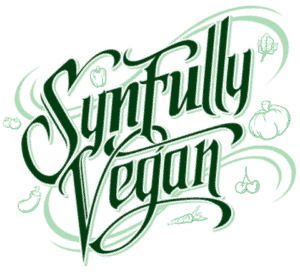With the rise in the number of people embracing vegan-friendly diets and the rise in dairy sensitivities, many people look for an alternative to cattle’s milk. Plant-based milk, and more pointedly nut-based milk, have been consumed worldwide for more than seven centuries. Hence, they are a safe, nutrition-rich and tasty replacement to dairy milk.
Depending on the need, taste, texture and nutritional requirements, you can choose from a wide range of plant-based milk properties. Few of the most common vegan alternatives for dairy milk are almond milk, cashew milk, coconut milk, hazelnut milk, hemp milk, oat milk, rice milk, soya milk, peanut milk, pea milk and so much more.
Vegans have an extremely wide range of ingredients to choose from based on whether you want to consume it in its raw form (as a drink) or use it to cook or bake dishes.
A few variants like almond milk are also used in the preparation of certain cocktails. Hence, we have given you a brief description of ten great plant-based milk alternatives below.
Soy Milk
Soy milk is produced by soaking soya beans in water, till they are saturated and then grinding them to form a thick mixture. After this process, the mixture will be boiled and the solid particles will be then filtered from the milk. It is extremely similar to regular dairy milk, texture-wise and nutrition-wise. It has been one of the most popular choices of vegan milk.
Soy milk is a rich source of proteins and calcium and has a much lower calorie count. Compared to vegan milk, it has way lower saturated fats and cholesterol content.
Soy milk a wonderful alternative to milk, for protein diets designed for certain physical workouts. Thus, now you can opt for a healthy substitute which is also vegan friendly.
Soy milk is extremely flexible in being utilized. It can be used for cooking or baking, or even for the preparation of desserts, making it a versatile dairy milk alternative. The applications of soy milk, include raw consumption, as an ingredient for a dish or you can use one of its derivatives like Soy Curd or Tofu.
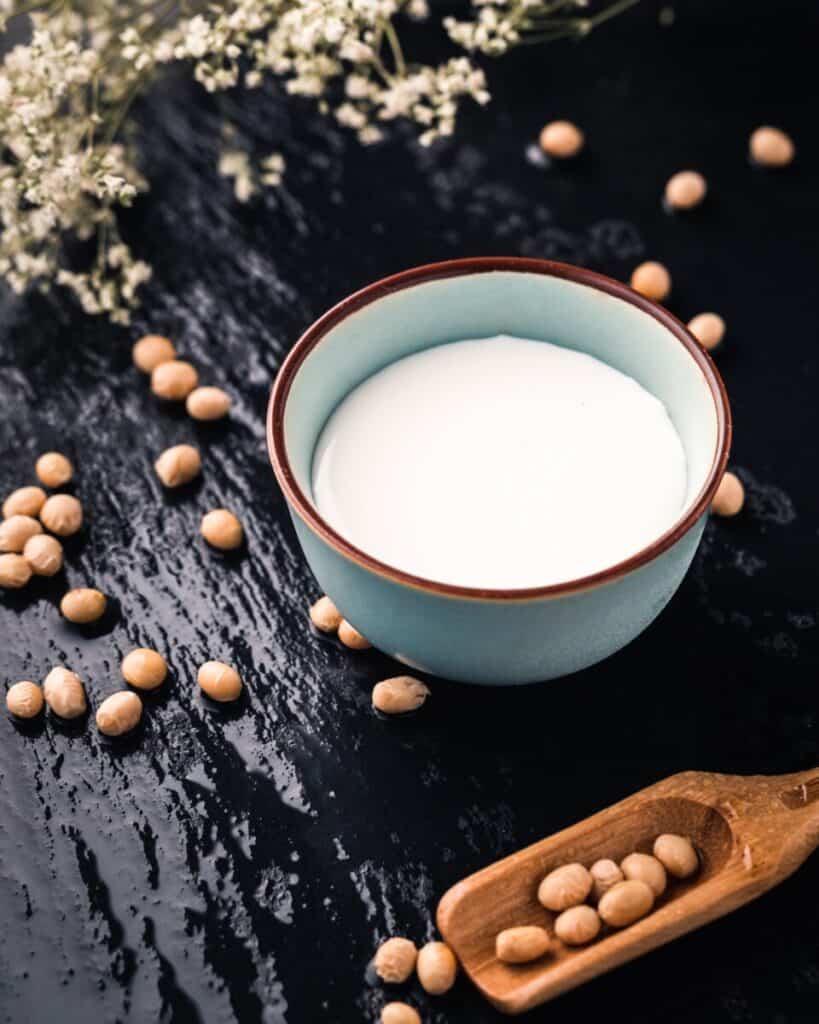
Almond Milk
Almond milk is the closest to dairy milk in terms of taste, due to which they are by far the best alternative to dairy products for cooking applications. It is produced by mainly grinding water and soaked almond together, and filtering out the residual bits from the mixture.
Although it is thinner (less dense) than cattle milk, they come in very handy in making vegan-friendly milk-based dishes. In the US, almond milk is one of the most widely consumed plant-based milk. It is relished mainly by raw consumption thanks to its great texture and mesmerizing flavor.
Almond milk is also widely used as an alternative for the preparation of creamy liqueurs like Bailey’s as well as in other cocktails to replace the milk element of the drink with a vegan option.
But almond milk lacks the versatility of soy milk. It tends to develop a flaky texture when boiled or mixed with certain ingredients. Hence, it is a perfect alternative for the preparation of certain cold foods like Smoothies, ice creams, salad dressings, cupcakes, pastries etc. It is also moderately rich in the required micro-nutrients while having low-fat content and zero cholesterol.
Almond Milk is a rich source of calcium, antioxidants and a naturally rich source of Vitamin E. All these are essential for a stronger skeletal system, better eyesight and healthier skin.
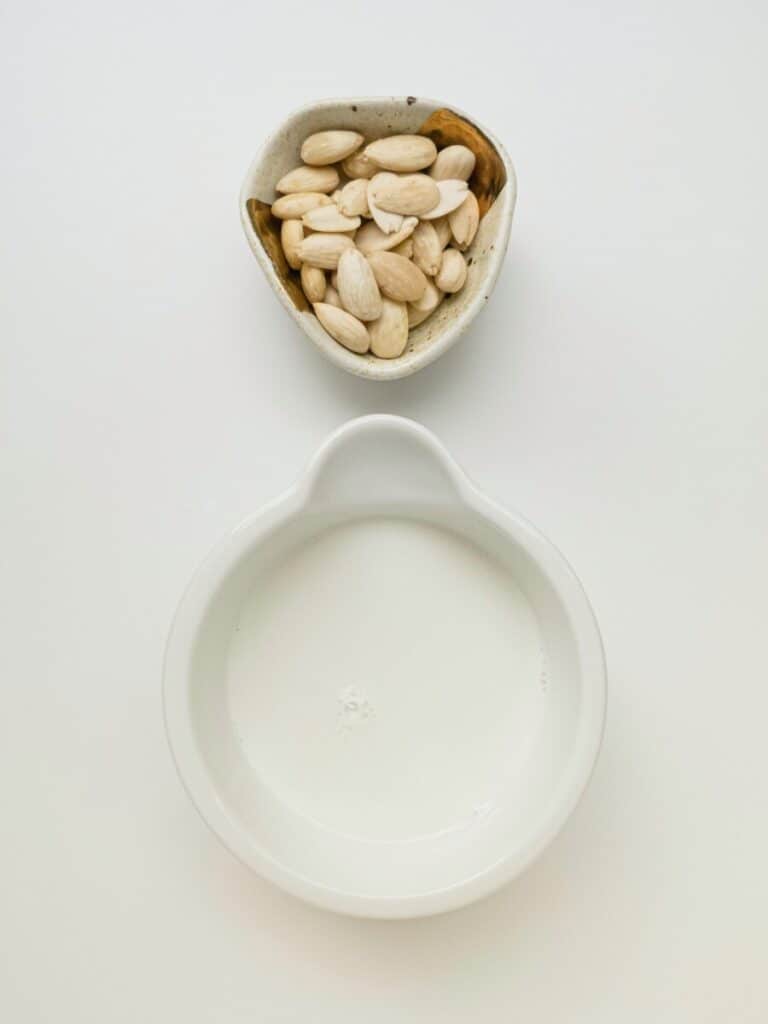
Coconut Milk
Although coconut milk has been traditionally used in South Asian countries as part of stews and sweets, for centuries, it is slowly creeping into the western household in recent times.
Coconut milk is naturally a lactose-free option. So, it a great alternative for anyone who has lactose intolerance. Despite being an innovative option to satisfy all your cooking or baking needs, it is a nutrient deficit milk alternative. Hence, it is generally prepared using herbs and other substitutes added to it, to improve its nutrition content.
Coconut milk is a great option for cooking and boiling, making it ideal for stews, curries, soups, smoothies and ice cream. Although it has a slightly higher fat content, they genuinely add a rich flavor to your dishes. It is quite similar to dairy milk in terms of taste and texture.
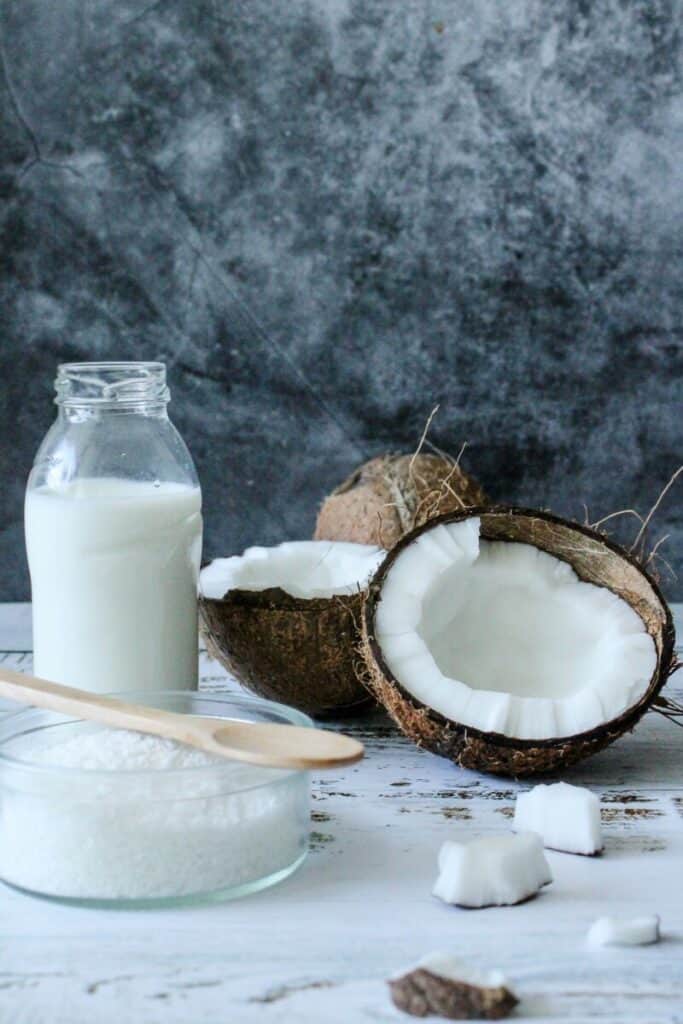
Rice Milk
Rice milk is very famous for the fact that it is inherently nut and gluten-free. Hence it is a great choice for people who have any sort of dietary restrictions. It has a natural sweet taste and can be used for cooking and baking.
The consistency of rice milk is extremely thin. Hence, production companies generally add thickeners and food preservation additives to increase the texture and durability of the milk. It is generally made from brown rice and brown rice syrup, due to which, it has lower calcium content. But the processed milk has a moderately high calcium content and other essential micro-nutrients thanks to the additives.
Rice milk is very versatile in use. It enhances the flavor of other ingredients without having a distinctive flavor of its own. Hence, it is great for making a variety of delicious foods like savories, cookies, brownies, smoothies, chocolate drinks, and much more.
Oats Milk
Oats milk is made using soaked whole oats which are blended with a portion of water and then strained using a nut milk bag. Oats milk is a fibrous, high protein, low carbohydrate milk alternative. They have all the goodness of an oat meal, with the added convenience of making it in any form-a cold drink, a desert, a hot beverage, etc.
Oats milk is naturally sweet with a thin consistency, just like skimmed dairy milk. It has more protein content compared to most other vegan milk. It is widely used for cooking and baking and is a popular choice for ice creams.
Due to its refined taste, oats milk is a very good milk substitutes in beverages like coffees and teas. Oats milk can also be experimented with to make energy bites and granola bars or can be added to smoothies.
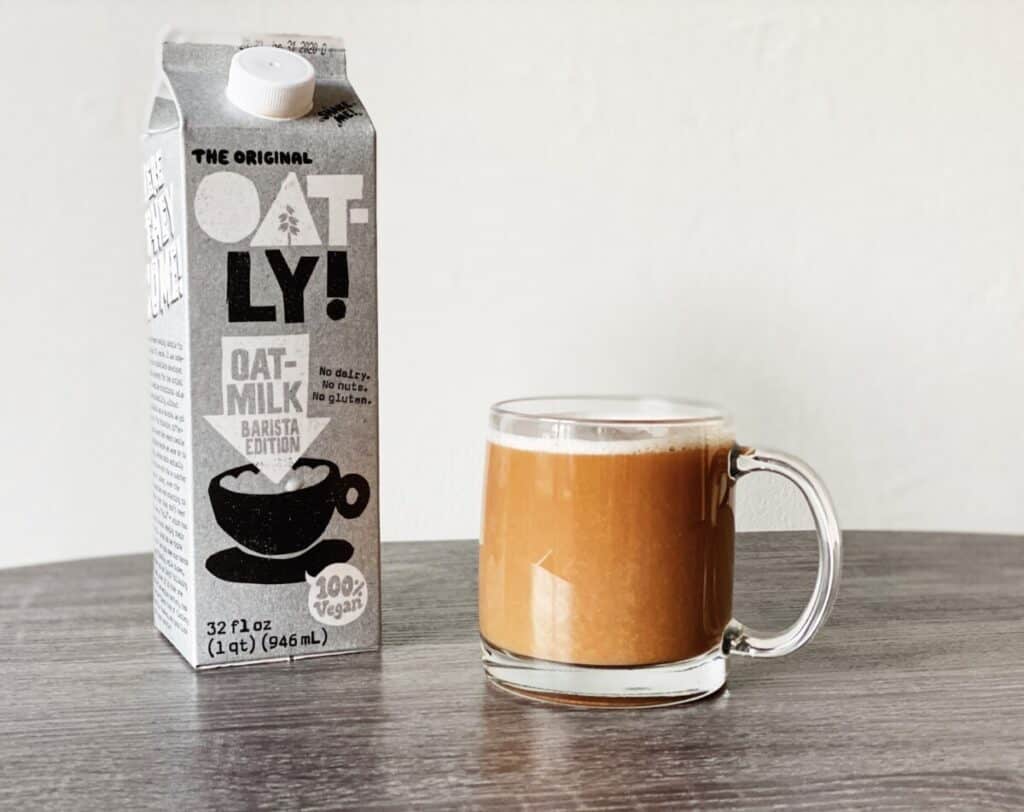
Cashew Milk
Cashew milk has a nutty texture and very creamy. It can be used in making a plethora of dishes, because, like coconut milk and rice milk, instead of having a distinguished individual flavor, it complements the other flavor in the dish.
Cashew milk can be used for the preparation of soups, lattes, smoothies, cereals, desserts and so much more. The commercially available cashew milk is made by grinding a soaked roasted cashew mixture to a paste and then watering it down into a liquid solution.
Although cashews inherently have a high calorie and fat content, this is filtered out while straining the cashew milk. Meaning they only have most of the good elements of cashew- vitamins, minerals, while maintaining a significantly lower calorie count than other alternatives.

Flax Seed Milk
Flax seed milk is produced by blending flax seed oil with water at low temperatures. Depending on the quality and concentration of the flax seed oil used, the nutritional values of the milk changes with the manufacturer.
Regardless, most variants have low carbohydrates and low-fat content in them. Flax seed milk has a nuttier sweet taste, almost similar in flavor to oats. Flax seeds are very creamy and flax seed milk is very close to cattle milk in texture.
Flax seed milk is a hypoallergic milk substitute – it is dairy-free, nut-free and gluten-free. So, you do not have to worry about food allergies. Flax seed milk has the property of absorbing moisture content giving it a rich consistency.
Flax seed milk can be used as dairy cream or milk substitute for baking fluffy dessert delicacies like pancakes, cupcakes, muffins and other similar foods.
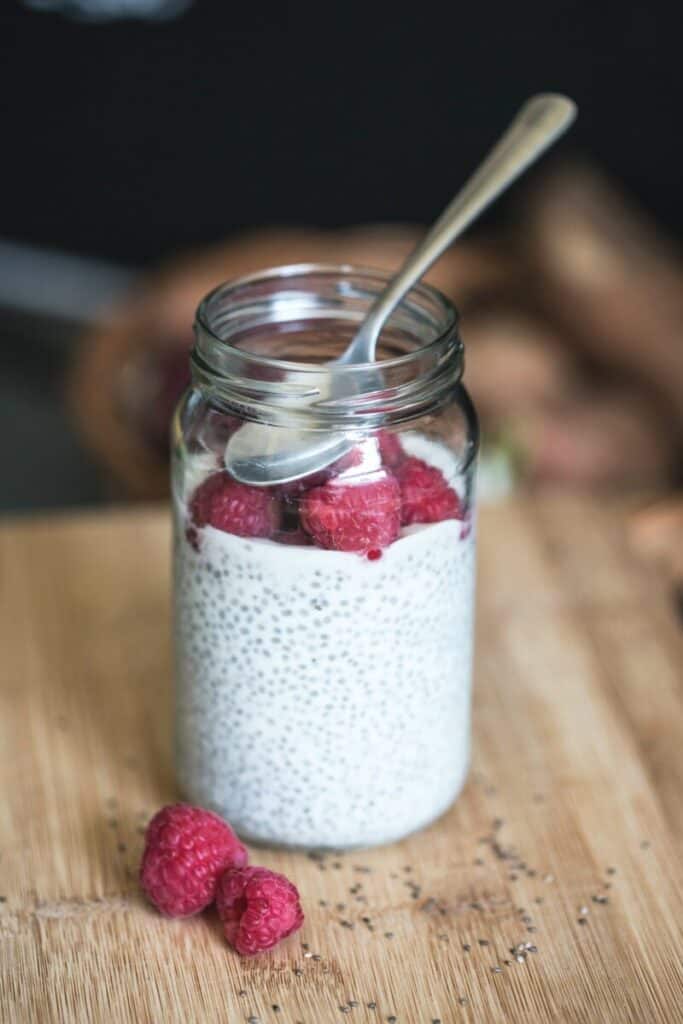
Pea Milk
Pea milk is a non-dairy milk alternative made from yellow pea plants. It has a very good source of protein and has a good taste and smooth texture. Pea milk is rich in potassium, calcium, vitamin A, vitamin D and iron, nutrients which is generally lower in a regular vegan diet.
Pea milk is a great way to push those numbers up in your diet. It is also rich in omega 3 fats. Due to the nutritional benefits of pea milk, it helps you maintain a healthier heart, greater immunity and better brain and nervous system.
Pea milk can be used to prepare a variety of dishes like pancakes or thick shakes or smoothies owing to its thick consistency. Pea milk is also a great addition for the preparation of savories.
Commercially available in four variants, of which the flavored variants like chocolate and vanilla, are a great beverage to enjoy, almost recreating the taste of flavored dairy milk. Meanwhile, the other two variants- sweetened pea milk and unsweetened pea milk, are used for cooking purposes.
Like rice milk, pea milk is a great alternative to people having any nut or soy allergies. It is gluten-free and has low carbohydrate and sugar content. The unsweetened version is similar to milk in taste and may have a slight pea flavor.
Being the newest among the types of plant-based milk, pea milk is slowly gaining popularity in the market, due to its health benefits and environmental impact. Of all the plant-based milk products available, pea milk has the smallest carbon emission levels and uses much lesser water for production.
Comparing it to dairy milk, pea milk needs twenty-five times less water during manufacturing. Also, since pea pods are grown on a large scale, to be used as a by-product of production, the soil is enriched with nitrogen by the leguminous pea plants.
This increases the quality of soil and helps in better crop rotation. Pea milk is therefore an eco-friendly option to opt for.
Hazelnut Milk
Hazelnut milk is a treat for your taste buds. Thanks to its amazing taste, it very popular in the sweets and desserts’ industry. Hazelnut milk is slightly higher in calories but not protein. It has a thick, creamy and nutty flavor making it ideal for flavoring beverages, desserts, shakes, sweets and even ice creams.
This plant-based milk is almost as healthy as it tastes! It is a very good source of Vitamin E, making it great for your eyes and skin. It is rich in vitamins B1, B2 and B6, which are essential for proper blood circulation and help in optimizing brain activity.
Hazelnut milk also has folic acids which are essential for growth in children and has omega 3 fatty acids which keep your blood pressure and cholesterol in check.
Another great milk alternative worth mentioning in the macadamia nut milk, which is quite famous in Australia and New Zealand. They are a richer source of protein and calories.
Commercially available macadamia nut milk is relatively new but are a great alternative to Hazelnut milk. They are very close in taste and texture to hazelnut milk and can be used in any dish you can make using hazelnut milk. So, if you want a protein-rich alternative, Macadamia nuts are worth exploring.
Hemp Milk
Hemp milk or hemp seed milk is made by soaking the seeds in water and blending it. Due to its simplified method of production, it is generally marketed organic, as it achieves the taste, color and texture of regular milk and is durable, all without the need of additions of any food additives.
Also, since hemp doesn’t need any pesticides to grow and needs very less water, it’s an environment-friendly option.
Hemp milk is a rich source of omega 3 fatty acids and zero cholesterol content. It comprises of linolenic acid which is healthy for your heart. It is ideal for cooking, baking and raw consumption. Due to its creaminess, it is a very good milk alternative for making lattes or other milk hot beverages.

Nutrition Statistics of Plant-Based Milk
We have provided you with a table comparison of the nutritional benefits of the various types of vegan milk discussed in this article. Depending on the type of diet you are following, you can choose which vegan-friendly milk you can consume.
For example, for someone trying to integrate milk for a protein-rich diet, they can consume soy milk. Similarly, a person looking for a calorie deficit meal can opt for almond milk or cashew milk, instead.
| Name | Calories (kcal) | Protein (g) | Fat (g) | Carbohydrates (g) | Fiber (g) | Sugar (g) | Cholesterol (mg) | Calcium (mg) |
| Soy Milk | 7 | 3.9 | 4.2 | 1.2 | 1 | 0 | 451 | 80 |
| Almond Milk | 1.5 | 2.8 | 1.5 | 0 | 0 | 0 | 450 | 39 |
| Coconut Milk | 2.5 | 57 | 5.5 | 5 | 3 | 0 | 40 | 45 |
| Rice Milk | 1 | 2.5 | 23 | 1 | 10 | 0 | 285 | 120 |
| Oat Milk | 3 | 5 | 16 | 2 | 7 | 0 | 330 | 120 |
| Cashew Milk | 1 | 3 | 9 | 1 | 1 | 0 | 200 | 35 |
| Flax Milk | 3 | 2.5 | 1 | 3 | 7 | 0 | 110 | 120 |
| Pea Milk | 8 | 4.5 | 1 | 0 | 6 | 0 | 400 | 70 |
| Hazelnut Milk | 2 | 3.5 | 18 | 1.8 | 13 | 0 | 451 | 110 |
| Hemp Milk | 3 | 4.5 | 2 | 0 | 0 | 0 | 283 | 60 |
| Dairy Milk (for reference) | 7.5 | 8 | 11.7 | 0 | 12.3 | 24 | 305 | 149 |
Generally, since plant-based milk is manufactured using natural extracts of the starting plant, due to which the nutritional value of these milk can be controlled.
This is the reason vegan milk has zero cholesterol levels, extremely low-fat content, generally lesser calories count (when compared to dairy milk), all of which adds up to you having a much healthier heart in the long run.
Plant-based milks also have almost identical or sometimes higher calcium content than dairy milk, making them a nutrition-rich, vegan alternative for your daily diet intake.
Environmental Impact
A vegan lifestyle is a wonderful path toward a healthier and tastier diet. But more importantly, it reduces the number of animals and birds being slaughtered or exploited in farms and factories daily. This results in a significant reduction of the carbon footprint by the animal industry.
Let’s consider the production of milk from cattle alone. Milk obtained from cattle amounts to nearly four to six times more greenhouse gas emissions (methane) being produced when compared to emissions caused by the production of plant-based milk.
The land needed for the production of dairy milk is nearly ten times the size of a setup to produce the same quantity of plant-based milk. Smaller the place, lesser resources are needed, like water and electricity, for the production of milk.
So, this also reduces pollution by fossil fuels, burnt for power consumption. Another notable feature is, the water needed during the processing of vegan milk is less than half of what is needed to produce the same quantity of dairy-based milk.
Every drop of water being conserved is going to make a huge impact on our future. Hence, not only is your plant-based milk, vegan friendly, it is also environment friendly!
If you are enthusiastic to try out vegan alternatives of milk, this guide will help you pick the right kind of plant-based milk based on your requirement without having to compromise on quality, taste or texture.
